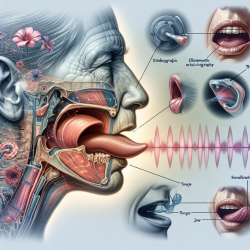In the realm of child development, understanding the physical activity and sedentary behaviors of young children is crucial. A recent study titled "Validation of parent-reported physical activity and sedentary time by accelerometry in young children" offers valuable insights into how accurately parents can report their children's activity levels compared to direct measures using accelerometers.
The Importance of Accurate Measurement
Physical activity is vital for the healthy development of young children, impacting their cognitive, mental, physical health, and social development. However, accurately measuring this activity has been challenging. Traditionally, parent-reported questionnaires have been used, but their validity has often been questioned. This study aimed to compare these reports with data collected from accelerometers worn by children.
Key Findings from the Study
- Total physical activity measured by accelerometers was significantly greater than parent-reported activity, with a median difference of 131 minutes per day.
- The correlation between parent-reported and accelerometer-measured physical activity was weak to moderate (r = 0.39).
- No significant correlation was found between parent-reported and accelerometer-measured sedentary time (r = 0.10).
- The study highlighted the need for more validation studies to assess the accuracy of parent-reported measures across different age groups within early childhood.
Implications for Practitioners
This research provides practitioners with a clearer understanding of the limitations of parent-reported data. It suggests that while these reports can offer some insights, they may not fully capture the extent of children's physical activities or sedentary behaviors. Practitioners should consider incorporating direct measurement tools like accelerometers when feasible, especially in research settings or when precise data is crucial.
Encouraging Further Research
The findings underscore the importance of continued research in this area. More studies are needed to refine methods for measuring young children's activity levels accurately. Practitioners are encouraged to engage with ongoing research efforts and consider participating in studies that aim to develop more reliable assessment tools.










